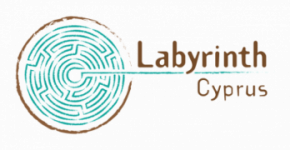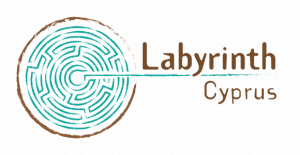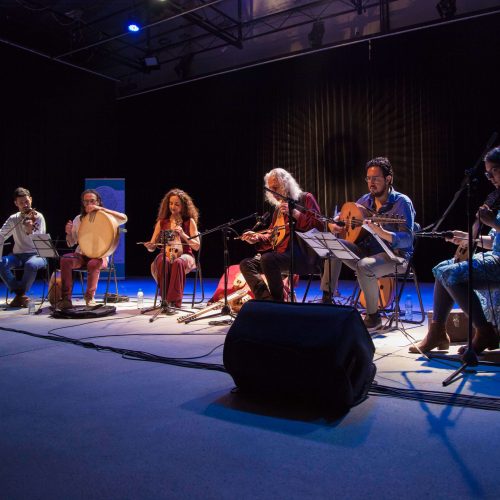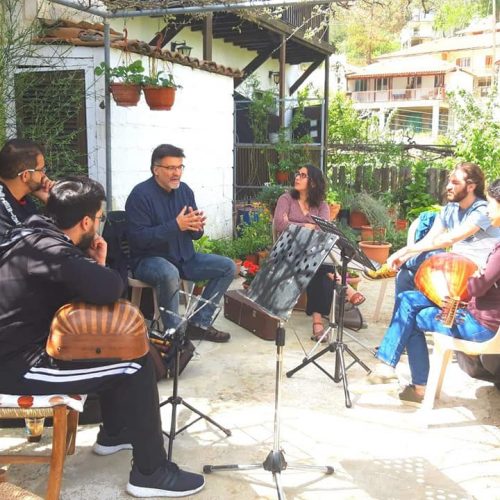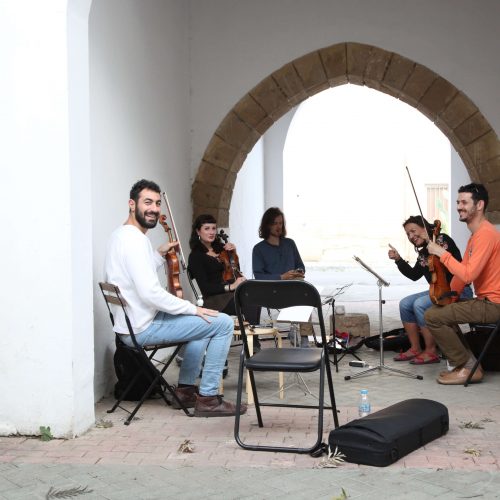Labyrinth Musical Workshop
The goal of Labyrinth Musical Workshop is to introduce a creative approach to studying and performing traditional musical idioms from all over the world. The workshop functions as a meeting hub for musicians, teachers and students — drawing, to a large extend, on younger participants.
As an organization, it is internationally acclaimed for its approach to education in the fields of modal music and traditions: Labyrinth was awarded the European Citizen’s Prize for 2012. The prize was launched by the Parliament in 2008 to recognize exceptional achievements by Europeans and is awarded for activities that facilitate cross-border cooperation within the EU and promote better mutual understanding and closer integration between citizens and member states.
Despite its developing scope and scale, Labyrinth-as-idea remains true to this original springboard: it was born in Crete by a community of friends committed to the possibilities of study, exploration and creative interaction within and between the various modal musical voices from around the world. Our shared approach has developed into a musical way of life rather than just an educational institution.
Labyrinth embraces musicians from all ethnic backgrounds, each of whom carries with them their distinct musical world, and find their expression through the medium of their own personal creativity. The members of Labyrinth do not necessarily share a particular ideology or philosophy; but they do share a superseding spirit of commonality and, of course, their love for music.
This cross-border and inter-culture approach is vitally important as we watch many of the world’s most remarkable and important traditions flounder, in danger of extinction due to political and commercial interests, and in a state of deterioration by the production of bizarre imitations that lack the life-force of dynamic creativity.
We aim to help the students learn the necessary technical and theoretical skills in each style but most importantly we urge the students to come closer to the spirit of the tradition they are studying. Developing knowledge and ability is just one of many other inter¬twining elements in developing (musical) common grounds: apart from the time spend in the classes teachers and students play music together, eat together, discuss common interest matters, share stories and so forth; together they explore often inaccessible traditions in a pleasant atmosphere and with a very personal dimension.
